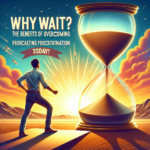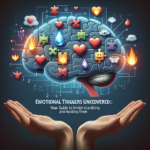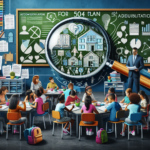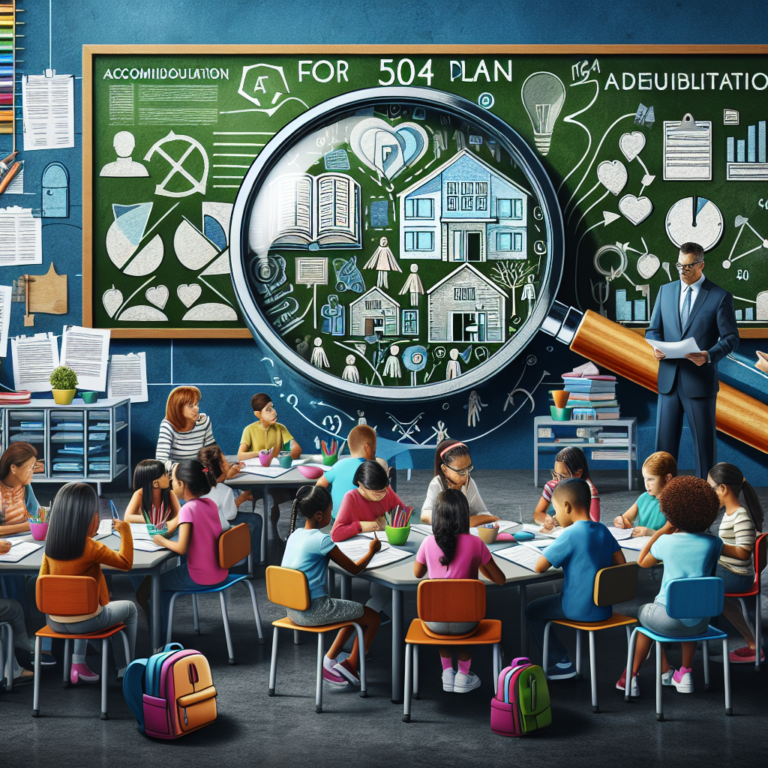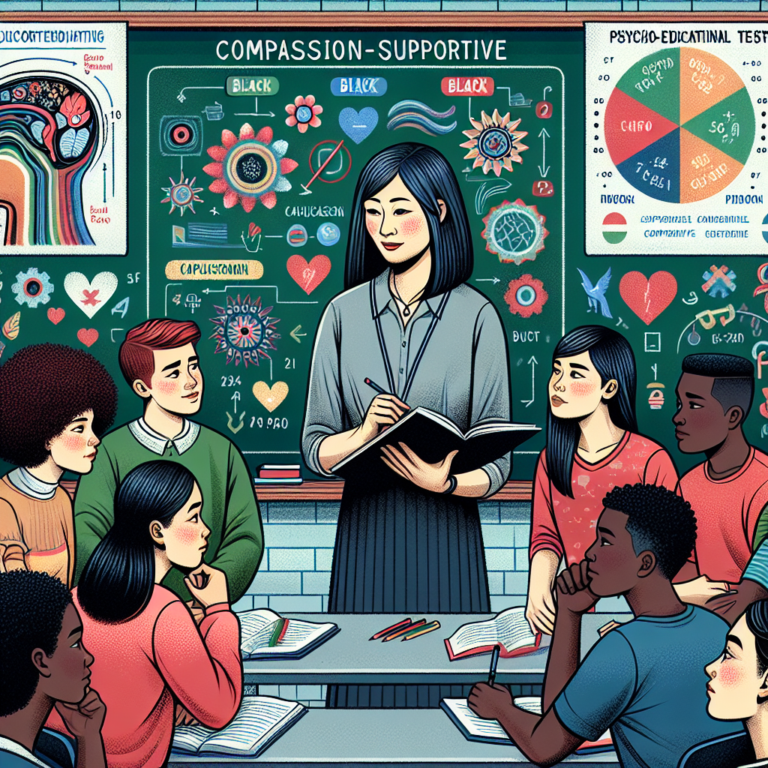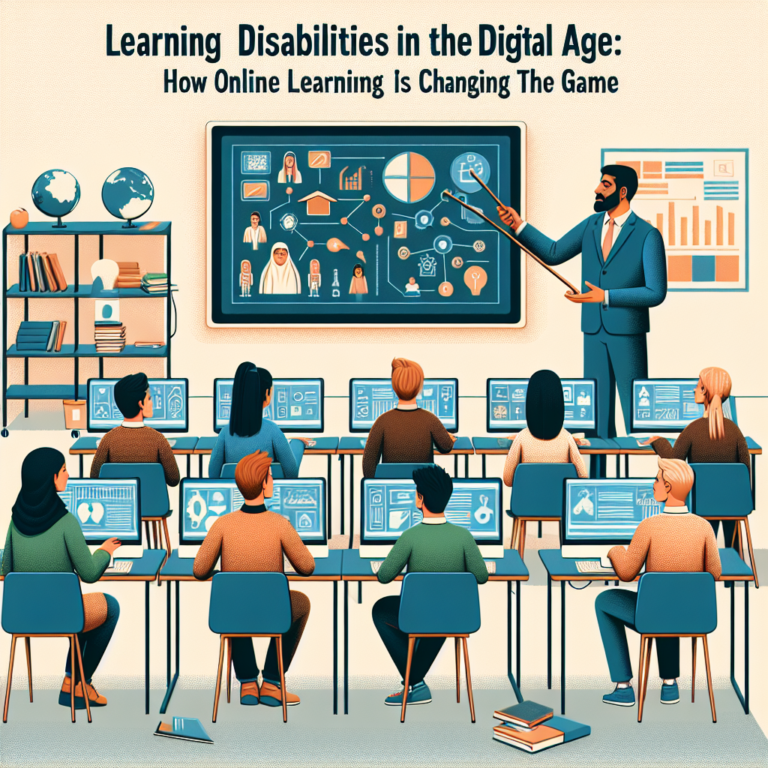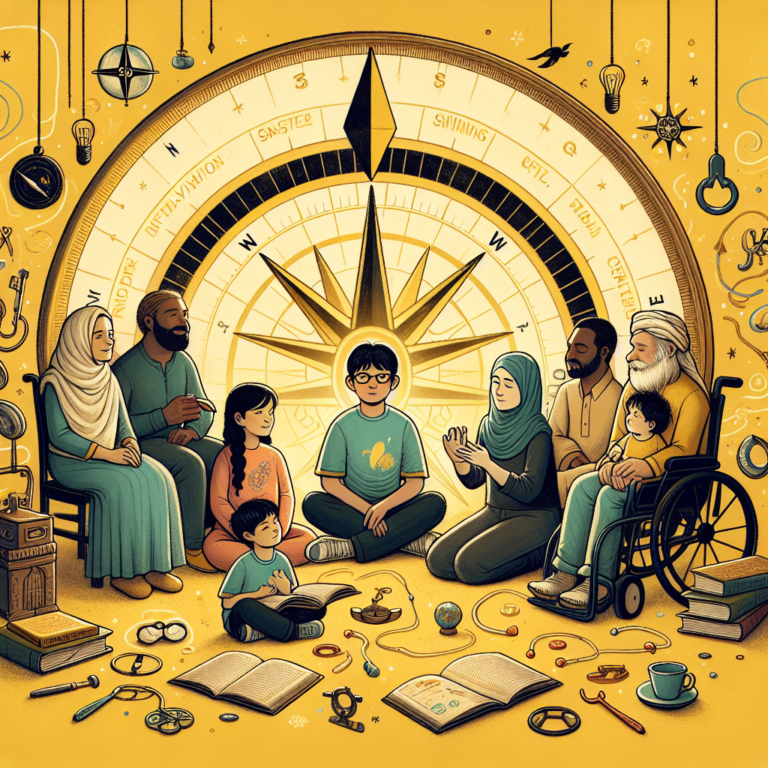
Introduction
In today’s rapidly evolving educational landscape, the role of teachers has expanded beyond just imparting knowledge. Among gifted students—those who demonstrate exceptional ability or potential—the need for a supportive environment that nurtures a growth mindset is crucial. The concept, popularized by psychologist Carol Dweck, posits that individuals who believe their abilities can be developed through dedication and hard work achieve greater success than those who view their intelligence as static. This article delves into The Role of Educators in Fostering a Growth Mindset in Gifted Students, emphasizing why this approach is essential for maximizing their potential and preparing them for future challenges.
Understanding Growth Mindset
Before diving into the role of educators, it’s essential to understand what a growth mindset entails. Unlike a fixed mindset, where individuals believe their abilities are predetermined, a growth mindset encourages learners to see challenges as opportunities for growth. For gifted students, this perspective can be transformative:
- Embracing Challenges: Gifted students often encounter tasks that can feel overwhelming. A growth mindset encourages them to tackle these challenges rather than shy away from them.
- Persistence: With a growth mindset, gifted students learn the value of perseverance, understanding that failure is a stepping stone rather than an endpoint.
- Learning from Criticism: Constructive feedback becomes a tool for improvement, which can be particularly impactful for gifted students who may otherwise resist criticism.
The Role of Educators in Fostering a Growth Mindset
Building Positive Relationships
A cornerstone of The Role of Educators in Fostering a Growth Mindset in Gifted Students is establishing strong, trust-based relationships. When students feel valued and understood, they are more likely to engage in learning and take risks:
- Active Listening: Teachers who listen to students’ thoughts and feelings foster an environment where students feel comfortable taking chances.
- Personal Connections: By getting to know their students personally, educators can tailor their approach, making it more relevant and motivating.
Case Study 1: The Power of Connection
At Maplewood High School, a gifted program was struggling with student engagement. Educators implemented regular one-on-one check-ins, allowing students to share their thoughts and concerns. This small change fostered a deeper connection, enhancing student motivation and resilience. Ultimately, students began tackling more challenging projects, reflecting the positive impact of strong educator relationships.
Creating a Safe Learning Environment
Gifted students may fear failure, often leading to underachievement. Educators play a critical role in creating a safe space where the fear of failure is minimized:
- Normalization of Mistakes: By sharing their own experiences of failure and learning, educators can demystify the fear associated with making mistakes.
- Encouraging Reflection: Allowing time for self-reflection helps students recognize their progress and identify areas for growth.
Case Study 2: Failure as a Learning Tool
The teachers at Crestwood Academy incorporated a "failure wall" in their classrooms, where students could post about their mistakes and the lessons learned. This initiative not only decreased the stigma surrounding failure but also enabled students to openly discuss challenges and strategies for overcoming them, showcasing a direct alignment with The Role of Educators in Fostering a Growth Mindset in Gifted Students.
Implementing Differentiated Instruction
Gifted students come with varying abilities and interests. Differentiated instruction is a vital strategy educators use to cater to these differences while promoting a growth mindset:
- Tailored Learning Paths: By personalizing learning experiences, gifted educators can challenge students at their level, fostering a continuous desire to learn.
- Choice and Autonomy: Allowing students to select topics, projects, or methods of assessment can drive engagement and motivation.
| Differentiation Strategies | Impact on Growth Mindset |
|---|---|
| Personalized Learning Plans | Encourages ownership of learning |
| Collaborative Projects | Enhances social learning and resilience |
| Varied Assessment Methods | Minimizes performance anxiety |
Case Study 3: Tailored Learning
At Greendale Middle School, educators adopted differentiated instruction methods by allowing gifted students to select their projects based on personal interests. As a result, students not only engaged more fully but also began exhibiting greater resilience when facing challenges, reinforcing The Role of Educators in Fostering a Growth Mindset in Gifted Students.
Encouraging Collaboration
Gifted students can sometimes operate in isolation, feeling disconnected from peers. Encouraging collaboration fosters a growth mindset:
- Peer Learning: Collaborative projects enable students to learn from one another, promoting a sense of community and shared goals.
- Diverse Perspectives: Engaging with diverse peer groups can lead to increased creativity and problem-solving skills.
Case Study 4: Collaborative Learning
At Ridgeview College Prep, gifted students participated in interdisciplinary team projects that paired them with students in various fields. This collaboration sparked a culture of sharing ideas and fostering creativity, highlighting the importance of peer interaction in fostering a growth mindset.
Establishing a Feedback-Rich Culture
Frequent feedback is essential for fostering a growth mindset in gifted students. Educators can reinforce this culture through specific strategies:
- Regular Check-Ins: Continuous assessment and feedback help students stay on track and understand their growth areas.
- Constructive Criticism: Encouraging students to view feedback as an opportunity for enhancement rather than a setback builds resilience.
Case Study 5: Feedback Loops
At Fairview High School, teachers established weekly feedback sessions where students could discuss their progress. This system not only improved academic performance but also cultivated a growth mindset, affirming The Role of Educators in Fostering a Growth Mindset in Gifted Students.
Incorporating Mindfulness and Emotional Intelligence
Fostering emotional intelligence is crucial for gifted students to manage their feelings of frustration or anxiety. Educators can facilitate mindfulness practices that support this development:
- Mindfulness Activities: Techniques such as guided meditation can help students center themselves and focus on their learning.
- Emotional Check-Ins: Regular emotional assessments can help educators gauge how students are feeling, allowing them to address issues promptly.
Case Study 6: Mindfulness in Education
At Harmony School, mindfulness education was integrated into the daily curriculum. Students reported feeling less stressed and more focused on their studies, illustrating the effectiveness of emotional intelligence in academic performance while underscoring The Role of Educators in Fostering a Growth Mindset in Gifted Students.
Conclusion
In conclusion, The Role of Educators in Fostering a Growth Mindset in Gifted Students is not only vital but also multifaceted. By building strong relationships, creating safe learning environments, implementing differentiated instruction, encouraging collaboration, establishing feedback-rich cultures, and fostering mindfulness, educators can profoundly impact gifted students’ mindsets and potential.
As education continues to evolve, the challenge remains for educators to be intentional and proactive in cultivating an environment that champions a growth mindset. By understanding and applying these principles, they can unlock untapped potential and prepare gifted students for not only academic success but also lifelong learning.
FAQs
1. What is a growth mindset?
A growth mindset is the belief that abilities and intelligence can be developed through effort, perseverance, and learning from failures.
2. Why is a growth mindset important for gifted students?
Gifted students often face unique challenges, and a growth mindset encourages them to embrace challenges, persist in the face of setbacks, and view criticism as an opportunity for improvement.
3. How can teachers foster a growth mindset in gifted students?
Teachers can foster a growth mindset by building positive relationships, creating safe learning environments, implementing differentiated instruction, encouraging collaboration, and providing consistent feedback.
4. What are some examples of activities that promote a growth mindset?
Activities that promote a growth mindset might include group projects that encourage peer learning, reflective journaling, and discussions about mistakes as learning opportunities.
5. How can parents support a growth mindset in gifted children at home?
Parents can support a growth mindset by encouraging effort over innate ability, celebrating failures as learning opportunities, and fostering a love for challenges.
By following these principles and insights, educators can be a powerful force in fostering a growth mindset, empowering gifted students to thrive both in and out of the classroom.
